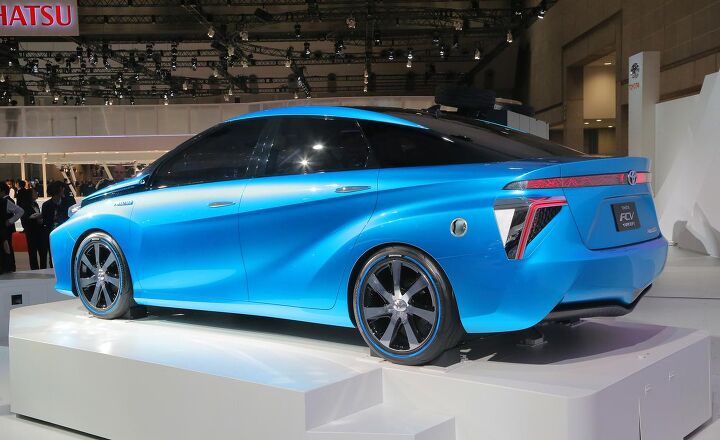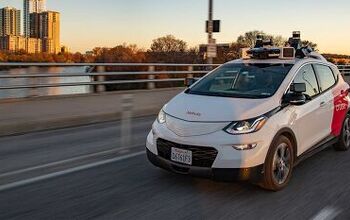Toyota Turns Away From Batteries, Toward Fuel Cells
After 20 years of pursuing a battery-powered future, Toyota has decided to take a different course powered by hydrogen.
Automotive News reports Toyota North America CEO Jim Lentz says his company sees EVs’ viability “in a select way, in short-range vehicles that take you that extra mile, from the office to the train, or home to the train, as well as being used on large [corporate] campuses.” This view is reflected in the decision to end its purchase agreement with Tesla of battery packs for 2,600 RAV4 EVs over three years, which Lentz personally felt future investment into the agreement would be better spent developing hydrogen fuel cells instead.
Speaking of such things, Toyota’s commitment toward a hydrogen future includes a $7 million “arms-length” investment in FirstElement Fuel Inc. — the startup founded by former General Motors and Hyundai executive Joel Ewanick — in its plan to build 19 hydrogen fueling stations throughout California by the autumn of 2015. The automaker’s own research found that 68 stations would be needed in California to meet the needs of 10,000 fuel cell vehicle owners, 50 of which are expected to come online by the end of 2016.
Lentz says he hopes his company won’t be alone in developing the emerging market like it was when the Prius first arrived. So far, Toyota, Honda and Hyundai are working on new fuel cell vehicles to help spur demand, the first of which are predicted to arrive in 2015.
Seattle-based writer, blogger, and photographer for many a publication. Born in Louisville. Raised in Kansas. Where I lay my head is home.
More by Cameron Aubernon


































Comments
Join the conversation
"Toyota Turns Away From Batteries, Toward Fuel Cells" But Toyota hasn't turned away from building UGLY cars
15 miles from my location, there's a Supercharger that can put 170 miles (80%) into a Model S in 30 minutes. This is based on existing (I daresay "old") technology - it's only going to get better from here. Fuel cells (along with the 3000psi hydrogen tank) belong in spacecraft; possibly could be useful in a transit bus scenario, but it's just plain silly except for people in a big friggin' hurry who are holding on to the "Gas Station" model for transportation fueling. I could see this if a smartly-uniformed attendant cleaned your windshield, and gave you a big "thumbs-up" as you drove off... And seeing your grandma struggling with a high-pressure H2 hose connector (cringe).
Well, I'm extremely uncertain about all this, but I notice that a lot of people seem to think they know better than Toyota engineers, and express some vague idea that there's a fundamental flaw with Hydrogen fuel. But they never express why it is they think Toyota hasn't thought of these flaws, and they don't quantify exactly how much more flawed it is than batteries. You have to keep in mind that transporting electricity and charging batteries isn't "free" either, there's energy lost along the way, just as there's energy lost when generating and transporting hydrogen. The real question is which one will turn out to be more efficient as the technology is developed in the future.
I might be the only one here who likes the look of this concept car. Nuclear is expensive, not because of the cost of infrastructure but the cost of insuring against the remote possibility of catastrophic failure. If you had a comfortable, smelly coal fired power station and were looking to replace it, would you take the risk?